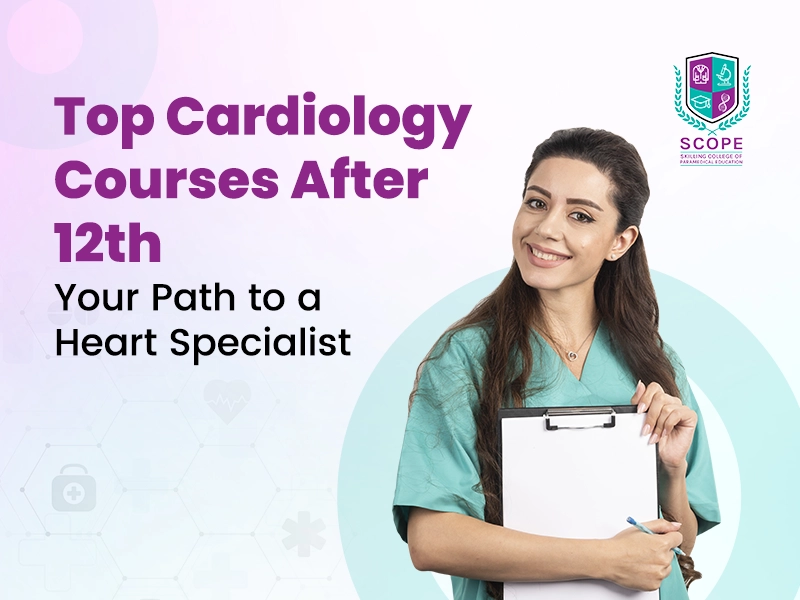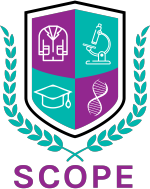
Cardiology, a branch of medicine focusing on heart health, is an increasingly popular field among students aspiring to make a significant impact in healthcare. With heart diseases becoming a leading health concern globally, the demand for skilled cardiologists is on the rise. This article delves into the top cardiology courses available after the 12th grade, offering a comprehensive guide to help you navigate your journey towards becoming a heart specialist.
Why Choose a Career in Cardiology?
A career in cardiology is not only prestigious but also incredibly rewarding. Cardiologists play a crucial role in diagnosing, treating, and preventing heart diseases, improving patients’ quality of life, and even saving lives. The field offers a blend of challenging work, intellectual stimulation, and the satisfaction of contributing to public health. Moreover, cardiology is a dynamic field, constantly evolving with medical advancements, ensuring continuous learning and professional growth.
Overview of Cardiology Courses After 12th
After completing the 12th grade, students interested in cardiology can pursue specialized courses designed to provide foundational knowledge and practical skills in the field. Here are the top courses:
- Diploma Course in Cardiology Technician
- Diploma in Cardiology Technician Assistant
- Cardiology Technician Assistant
Each course offers unique training and opportunities in the cardiology field.
Diploma Course in Cardiology Technician
Course Duration and Structure: The Diploma Course in Cardiology Technician at SCOPE College spans two years. It aims to equip students with the essential skills required to operate diagnostic tools and assist in cardiac procedures. The curriculum is carefully structured to include both classroom lectures and hands-on clinical training, ensuring that students gain practical experience alongside theoretical knowledge.
Eligibility Criteria: To be eligible for this program, applicants must have completed their 12th-grade education with a background in science. This requirement is critical as it ensures that students have a foundational understanding of scientific concepts, which is essential for grasping the more complex aspects of cardiology technology.
Salary Expectations: Upon completing the diploma, graduates can expect to earn an average salary ranging between INR 1,56,000 and INR 1,80,000 per year in India. This reflects the significant role cardiology technicians play in the healthcare system, where they support cardiologists and help ensure precise diagnostics.
Significance of the Course: This course is designed to thoroughly prepare students to manage and operate advanced cardiac diagnostic equipment, such as ECG machines and echocardiography devices. Additionally, it trains students to assist effectively during various cardiac procedures, thereby ensuring patient safety and care.
Career Prospects: Graduates of this diploma program are well-prepared to work as cardiology technicians in diverse healthcare environments, including hospitals, clinics, and diagnostic centers. Their role is pivotal in facilitating the diagnosis and treatment of heart-related ailments.
Scope of the Course: The demand for skilled cardiology technicians is on the rise, driven by advancements in medical technology and the increasing focus on preventative cardiac care. This trend offers graduates numerous opportunities for career advancement and specialization, encouraging them to further their expertise through additional studies or specialized certifications.
Diploma in Cardiology Technician Assistant
Course Duration and Structure: The Diploma in Cardiology Technician Assistant is a 12 month program focused on training students to assist cardiologists and manage cardiac diagnostic tools. The curriculum combines theoretical learning with practical experience in clinical settings.
Eligibility Criteria: The course is open to working professionals or any paramedic, providing a pathway for those already in the healthcare sector to specialize further.
Salary Expectations: Graduates of this program can expect an average salary ranging from INR 3,00,000 to INR 4,00,000 per year in India.
Significance of the Course: This course is designed to deepen knowledge in cardiac care principles, enhance skills in operating cardiac diagnostic equipment, and strengthen patient management capabilities.
Career Prospects: Successful graduates can find employment in hospitals, specialty clinics, diagnostic laboratories, private practices, rehabilitation centers, research institutions, and public health organizations.
Scope of the Course: There is significant demand for skilled cardiology technician assistants, with ample opportunities for further specialization and career advancement in various healthcare settings.
Certificate in Cardiology Technician Assistant
Course Duration and Structure: The Certificate in Cardiology Technician Assistant course at SCOPE College is a 6-month program tailored to provide comprehensive training in supporting cardiologists during clinical and diagnostic tasks.
Eligibility Criteria: The program is open to individuals who have completed at least the 10th grade or 12th grade from any stream, or are working professionals seeking to specialize further in cardiology.
Salary Expectations: Graduates of this certificate program can expect to earn an average annual salary ranging from INR 1,00,000 to INR 1,50,000.
Significance of the Course: The course equips students with skills to operate cardiology-specific diagnostic equipment, assisting in essential procedures and enhancing patient care.
Career Prospects: Students successfully completing the program have career opportunities in hospitals and imaging centers, where they play a vital role in cardiology departments.
Scope of the Course: There is significant demand for cardiology technician assistants, and this course offers a pathway to join this growing field, with potential for further specialization and advancement.
Career Opportunities After Completing Cardiology Courses After 12th
Completing cardiology courses after the 12th grade opens doors to a range of promising career opportunities in the field of cardiology:
Cardiology Technician
Graduates can work in hospitals, diagnostic centers, and clinics, operating diagnostic equipment to assist in diagnosing and treating heart conditions. There are opportunities for specialization in areas like pediatric cardiology or cardiac rehabilitation.
Cardiology Technician Assistant
These professionals support cardiologists during procedures and manage cardiac diagnostic tools. They find employment in hospitals, cardiac care units, and outpatient clinics, with paths to senior technician roles or specialization in cardiovascular imaging or electrophysiology.
Further Studies and Specializations
Pursuing advanced degrees such as a Bachelor’s in Cardiac Technology, Master’s in Cardiology, or MD in Cardiology opens doors to becoming qualified cardiologists. This allows graduates to practice independently, specialize in complex cardiac conditions, and lead cardiac care teams.
Research and Academia
Graduates can contribute to cardiovascular research in institutions, pharmaceutical companies, or academia. Opportunities include conducting clinical trials, advancing treatment options, and enhancing understanding of heart diseases.
Cardiovascular Rehabilitation Specialist
These professionals help patients recover from heart-related illnesses through tailored exercise programs, lifestyle adjustments, and patient education. Career opportunities exist in hospitals, rehabilitation centers, and private practice settings, focusing on improving patients’ quality of life post-cardiac events.
Cardiovascular Research Technician
Supporting research in laboratories, these technicians assist in experiments, data collection, and equipment maintenance. They contribute directly to advancements in cardiovascular medicine, working towards better treatment modalities and outcomes for heart patients.
Real-Life Applications of Cardiology
Cardiology, the branch of medicine dealing with heart disorders, has numerous real-life applications that impact both individual health and public well-being:
Diagnosis and Treatment of Heart Diseases: Cardiology plays a pivotal role in diagnosing and treating various heart conditions such as coronary artery disease, arrhythmias, and heart failure. Advanced diagnostic tools like electrocardiograms (ECGs), echocardiograms, and stress tests help cardiologists assess heart function and formulate treatment plans tailored to each patient.
Cardiac Interventions: Interventional cardiology involves minimally invasive procedures to treat cardiovascular diseases. Techniques such as angioplasty, stenting, and catheter-based interventions help restore blood flow to the heart, reducing the need for traditional open-heart surgery and promoting faster recovery times for patients.
Emergency Cardiac Care: Cardiology is crucial in emergency settings such as heart attacks (myocardial infarction) and cardiac arrests. Prompt diagnosis and intervention can save lives, emphasizing the importance of early recognition of symptoms and immediate medical response.
Curriculum Insights in Cardiology Courses
Understanding the curriculum in cardiology courses provides insights into the foundational knowledge and practical skills students acquire:
Core Subjects: Courses typically cover anatomy and physiology of the cardiovascular system, pathology of heart diseases, and diagnostic procedures such as ECG interpretation and echocardiography. Students also learn pharmacology relevant to cardiology and principles of patient care in cardiac settings.
Hands-on Training: Practical training includes using diagnostic equipment like ECG machines and stress testing devices, gaining proficiency in conducting cardiac assessments, and practicing sterile techniques in clinical settings. Simulation labs and clinical rotations offer hands-on experience in real-world scenarios.
Specialized Electives: Advanced courses may offer electives in areas like interventional cardiology, cardiac rehabilitation, and pediatric cardiology. These electives allow students to specialize in specific aspects of cardiology and prepare for specialized practice or further academic pursuits.
Why Choose SCOPE College?
Skilling College of Paramedical Education (SCOPE) is a leading institution offering a comprehensive array of healthcare courses after the 12th grade, including specialized cardiology programs such as:
- Diploma Course in Cardiology Technician
- Diploma in Cardiology Technician Assistant
- Certificate in Cardiology Technician Assistant
Accreditation and Excellence: SCOPE is accredited and esteemed in the healthcare education field, ensuring high-quality education and professional recognition for its cardiology courses. The college’s reputation underscores its commitment to delivering excellence in cardiology training.
Comprehensive Curriculum: SCOPE College provides a robust curriculum for its cardiology courses, blending theoretical knowledge with extensive hands-on training. Students gain proficiency in using advanced diagnostic equipment and performing cardiac procedures, preparing them effectively for real-world challenges in cardiology.
Why Enroll at SCOPE College?
Enrolling at SCOPE College offers several compelling advantages for aspiring cardiology professionals:
Career-Focused Education: The college’s cardiology programs are designed to meet industry demands, equipping graduates with the skills and knowledge required for successful careers as cardiology technicians or assistants.
Practical Hands-On Training: Students benefit from hands-on training in modern labs equipped with state-of-the-art diagnostic tools specific to cardiology. This practical experience enhances their competence in cardiac diagnostics and patient care.
Career Support: SCOPE College provides robust career support services, including job placements and career guidance, leveraging its strong industry connections in healthcare. Students receive assistance in securing internships, clinical placements, and job opportunities upon graduation.
Choosing SCOPE College ensures a comprehensive education in cardiology, supported by accreditation, a strong curriculum, and extensive practical training, all aimed at preparing students for fulfilling careers in the dynamic field of cardiology.
Conclusion
Choosing the right cardiology course after the 12th grade is pivotal for embarking on a rewarding career in healthcare. Prospective students can confidently select their path by evaluating essential factors such as accreditation, comprehensive curriculum, practical hands-on training, and robust career support provided by institutions like SCOPE College. This ensures they are well-prepared to excel in the dynamic field of cardiology, contributing significantly to heart health and patient care.
Frequently Asked Questions
Is NEET required for admission to cardiology courses?
A: No, NEET (National Eligibility cum Entrance Test) is not required for admission to cardiology courses
Is cardiology a good career option?
A: Yes, cardiology offers a promising career path with opportunities for specialization and advancement. It involves critical work in diagnosing and treating heart conditions, contributing to healthcare and patient well-being.
How can I join cardiology after completing the 12th grade Science?
A: To pursue cardiology after the 12th grade, you can enroll in specialized diploma or certificate courses offered by accredited institutions like SCOPE College. These programs provide essential theoretical knowledge and hands-on training in cardiology.
Is cardiology a lucrative career in terms of salary?
A: Yes, cardiology offers competitive salaries, especially for qualified professionals like cardiologists, technicians, and assistants. Salaries vary based on factors such as experience, location, and type of healthcare facility.
What are the potential growth prospects in the field of cardiology?
A: Cardiology offers significant growth prospects with advancements in medical technology and an aging population contributing to increasing demand. Graduates can advance into specialized roles, research positions, or leadership roles in healthcare settings.
